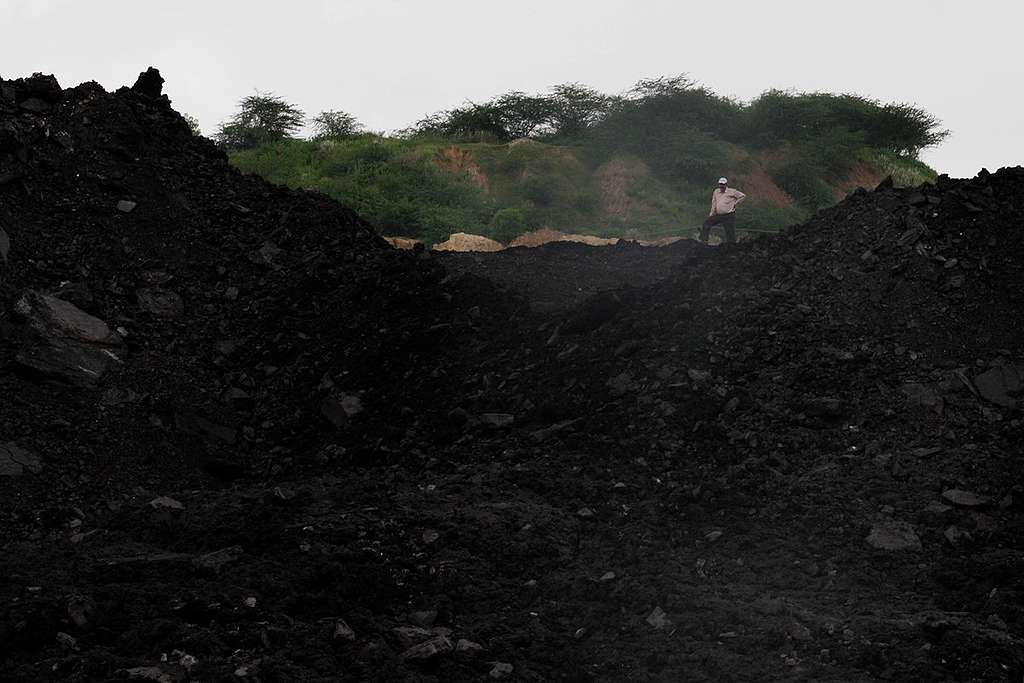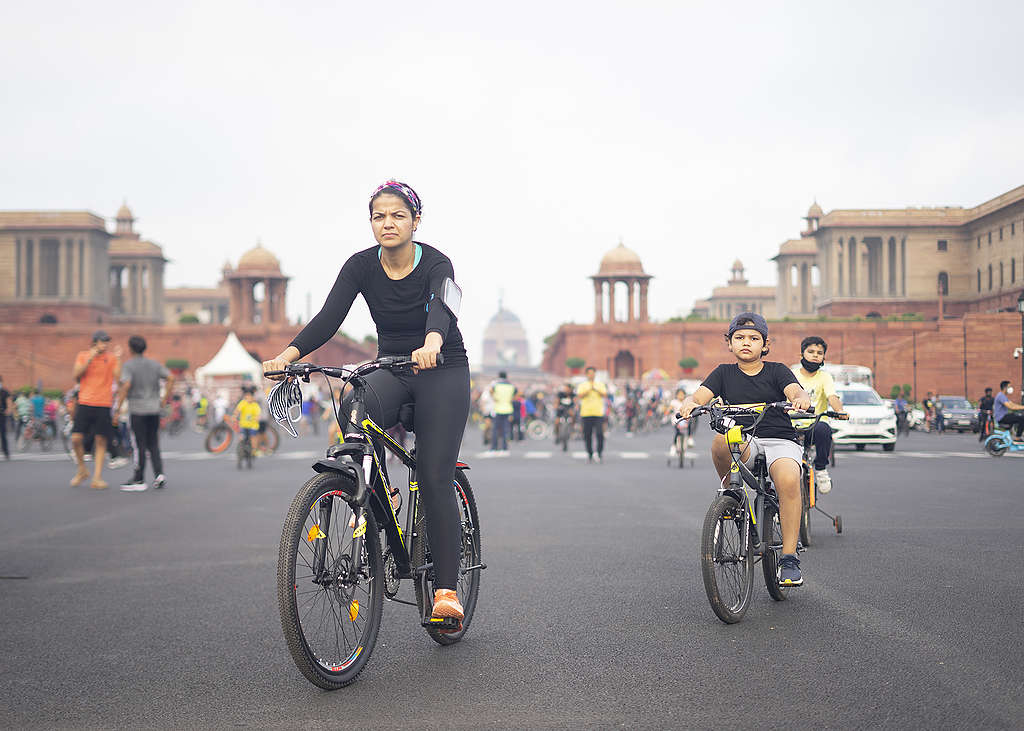The Supreme Court deemed in an order on August 25 that all coal block allocations since 1993 are ‘illegal’ on grounds of arbitrariness, legal flaws lack of transparency, fairness and even application of mind. This verdict is of significant importance in sending a signal to the NDA regime that future mining decisions would have to also adhere to high levels of scrutiny. Furthermore, it is also a clear sign that due process and norms on coal mining were not followed in the allocations.

The coal pile at the Padmapur mine in Chandrapur, Maharashtra.
Commenting on the Supreme Court decision, Arundhati Muthu, campaigner, Greenpeace India says, “Greenpeace has been pointing out that green clearances are not the hurdle for the delay in operationalisation of coal mines. Today’s Supreme Court order has shown that crony capitalism has led to the handing out of coal with little application of mind or of a modicum of transparency and due process. This gives hope to activists calling for the application of law and due process on other legalities to do with mining clearances such as rights of forest dwelling communities.”
The SC called all allocations made by the screening committees illegal. In the case of the Mahan coal block (in Singrauli, Madhya Pradesh and allocated in 2006) for instance, the coal ministry’s screening committee minutes and CAG documents state that the decision to allot Mahan jointly to Essar and Hindalco was taken at the 27th Screening Committee meeting on March 1, 2005. But the minutes of that meeting, obtained through an RTI, show that Essar was not favoured for Mahan.
“The Madhya Pradesh government initially lobbied hard to have the Mahan block allotted only to the state entity, Madhya Pradesh State Mineral Development Corporation Limited. However, when the Screening Committee decided to allot the block to Hindalco on the grounds that state entities were entitled to many blocks not available to private players, the MP government in a fishy quick turnaround then made the case for allotting the block only to Essar Power with completely new reasoning to justify this demand,” says Muthu. Today’s SC order even talks about the MP government’s change in stance.
This crony capitalism is still at play as the right of community members of over 50,000 people from 54 villages are being quashed in the region of Mahan. “The ultimate beneficiaries are Essar and Hindalco. We need to press the pause button on all new block allocations and forest clearances till the murky issue of allocations is impartially probed,” adds Muthu.
The Supreme Court order validates Greenpeace’s demand for transparency and due process in the allocation of coal blocks. Further, it makes it clear that the rights of forest communities and the impact on the environment cannot be ignored while making these decisions.

